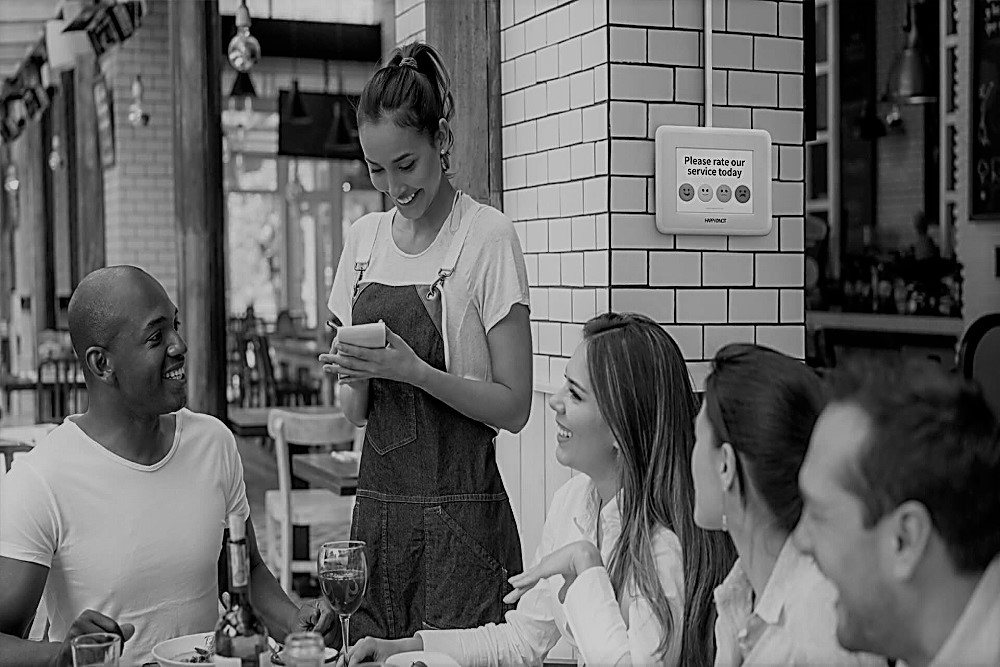Developing Staff Engagement for Positive Guest Experiences
Previously Posted on RestoBiz by Doug Radkey 04/11/2018
Engaged and motivated employees are at the heart of positive restaurant experiences. Working at a restaurant or any hospitality-related business needs to be more than just another paycheck. Restaurant operators need to remember that money is not a motivator – it is a satisfier.
When employees are satisfied and engaged, everyone wins.
When restaurant staff members are effectively on-boarded, trained, and are emotionally happy in their environment (a venue where they get a sense of achievement, respect and wages), they are more often than not willing to share these positive moments with others, effectively becoming a brand ambassador – both inside and outside of the restaurant.
If restaurants hire for a mix of values and experience, versus experience alone, and create a systematic approach to hiring through proper job advertisements, interview processes, on-boarding, manuals and training, they will see an immediate difference in their culture and turnover costs.
This is why it’s important to remember that ‘values beat experience, when experience doesn’t work hard’.
Investing in employee engagement can give any new or seasoned restaurant a competitive edge. Let’s look at the steps needed to create effective staff engagement today:

On-Boarding Strategies
On-boarding is often overlooked within the restaurant industry, though it should be a priority! It’s an opportunity to introduce new hires to your expectations and culture, the first step in developing engagement. The days of throwing new hires into the fire on their first day of work needs to come to an end; no matter their level of experience. All staff should be given a series of welcoming packages, manuals and proper training specific to the brand. Lastly, on-boarding provides a clear chance to define what it means to be productive, promote compliance, and create the footprint for a memorable working experience.
Proper Communication
It is important to ensure the restaurant has a pre-shift meeting with all staff members on-duty. This will set the tone for the upcoming shift, whether in the kitchen or the front-of-house area. This is the time to ensure all staff clear their minds of ‘outside noise’ and are working towards a series of goals for the upcoming shift. Other communication methods that will increase engagement opportunities include hosting staff meal programs to discuss menu items, manager log-books (print or mobile friendly), and having other communication boards strategically placed throughout the restaurant.
Continuous Education
Consider starting a program that offers to help pay for culinary or other hospitality related education. Once a candidate passes their three month probation, discuss an opportunity for them to take their learning to another level. This could include online courses, in-class courses, or visiting suppliers such as breweries, wineries, or local farms to learn specific product information. Imagine the long-term benefits and staff engagement a program like this will do to a restaurant’s bottom line and overall guest satisfaction.
Flow of Creativity
When employees are empowered with the opportunity to be creative, great things happen. It is ideal to keep staff engaged in the food and beverage menu development process. It may be wise to create a program that promotes a new food and/or beverage item each month. If each staff member creates a new dish or cocktail; hold a contest to see which item(s) should be featured over the next thirty days. Then for each sale of that item over the next month, ensure the creative staff member receives a small commission from the sales. This immediately creates a new story, a level of engagement (online and in-store), and could help with future menu engineering strategies!
Staff Reviews
One of the many methods used to create culture and accountability, is that of performance evaluations. This type of evaluation is extremely helpful to track an employee’s step-by-step development and is highly beneficial; for both the employee and operator. Staff evaluations highlight areas the employee may be excelling at and areas that are in need of improvement. It also provides an opportunity to develop performance based rewards, which is an excellent way to reduce employee turnover costs and keep employees engaged in their day-to-day tasks.
Team Experiences
Outside of commission-based sales and continuous education opportunities, restaurant teams still seek other experiences. When is the last time the entire team went to a staff party or took part in a staff building exercise? Depending on concept and median age of employees, a restaurant operator has the opportunity to take their team min-golfing, laser-tag, paint-balling or out for a meal/drink elsewhere, one night per quarter, to name a few examples.
In summary, providing a consistently positive restaurant experience through staff engagement is what creates customer loyalty and long-term brand ambassadors. Once you have formulated this mindset, and designed these programs, it’s time to promote it. Get your staff to talk about it, get them to help in your recruitment efforts, create a story on your website and menu, showcase your staff everywhere possible (social media), and finally invest in their future for the sake of yours. It really can be that simple.
